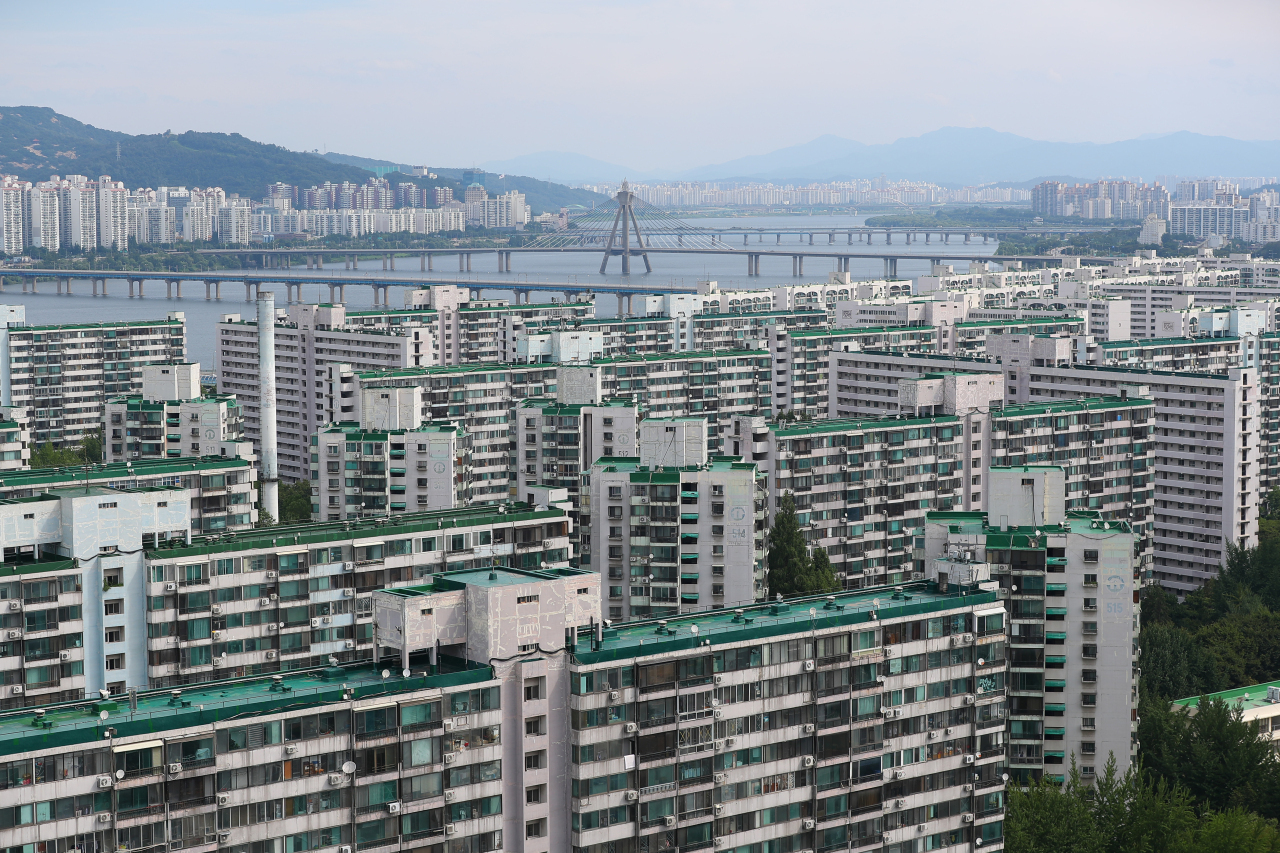The average sale price of real estate in redeveloped apartment complexes in Seoul has soared more than 50 percent over the past four years, data showed Monday.
According to data submitted by the state-run Korea Housing & Urban Guarantee Corporation to the parliamentary land committee, the average sale price per pyeong for reconstructed apartments stood at 31.5 million won ($26,345) as of this year. A pyeong is a unit of area used in real estate measuring, equivalent to 3.3 square meters.
 |
(Yonhap) |
This latest figure was up 11 million won or 53 percent from four years earlier. The average sale price per pyeong during that period had mostly remained under the 30 million won line but took a sudden upturn this year.
Also, the on-year increase rate for this year was 28.23 percent, the highest in four years, suggesting that the Moon Jae-in administration’s extensive real estate policies last year -- known as the Sept. 13 measures -- has not had the intended effect on Seoul’s property market.
Marking the steepest rise was Dongdaemun-gu in eastern Seoul, which saw its average sale price for reconstructed apartments soar 71 percent to 27 million won last year from 16 million won in 2017.
The city’s affluent Gangnam-gu saw its figure rise 22 percent over four years, to 48 million won per pyeong last year from 39 million won in 2015. Nowon-gu and Seongbuk-gu -- northern districts where a high proportion of redevelopment residential complexes are located -- logged 41 percent and 59 percent in respective increase rate during the same period.
“It is not easy to make an equal comparison (of prices) as there isn’t necessarily a case of reconstruction in every district every year,” said Rep. Youn Kwan-suk of the ruling Democratic Party, member of the land committee.
The rapid rise in the apartment sale prices was attributable to the slack management of the state-run housing corporation, especially until the recent revision of price-setting rules, according to the lawmaker.
The Ministry of Land, Infrastructure and Transport in June lowered the price ceiling regulations for redeveloped or reconstructed apartments, in an extended move to curb the bubble-prone residential real estate market here.
“In Seoul, the supply of new residential area has mostly been dependent on redevelopment and reconstruction (of old buildings), a process which has allowed market prices to rise,” Rep. Youn said.
“(The government) should come up with a supply plan which meets the demands of the non-homeowning population and also operate a coherent road map when it comes to price regulations.”
By Bae Hyun-jung (
tellme@heraldcorp.com)








![[Today’s K-pop] Blackpink’s Jennie, Lisa invited to Coachella as solo acts](http://res.heraldm.com/phpwas/restmb_idxmake.php?idx=644&simg=/content/image/2024/11/21/20241121050099_0.jpg)